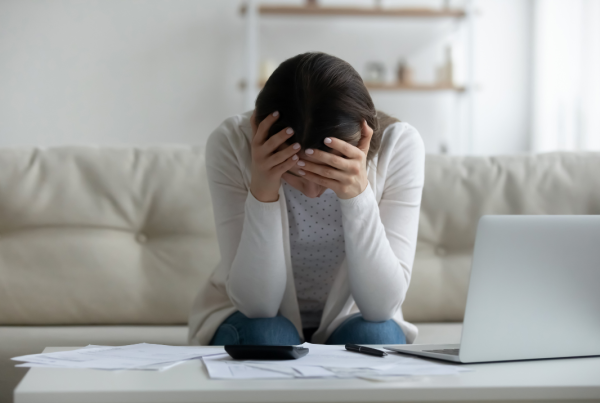
Masculinity has long been shaped by societal expectations that dictate how men should behave, feel, and express themselves. From an early age, men are often taught to adhere to certain characteristics and behaviors that are seen as “manly” or “masculine.” These traits—such as strength, confidence, emotional stoicism, and aggression—are deeply ingrained in our cultural fabric. But what happens when men are unable to meet these expectations, or when they feel vulnerable or out of sync with these ideals? Unfortunately, it can lead to feelings of shame, guilt, and even mental health struggles that are often misunderstood or ignored. Restoration & Wellness therapists, Nicholas Wall and Danielle Roser share their insights on the pressures men face in society today, and how they can challenge the pressure to conform.
The Pressure to Project Strength and Confidence
In many cultures, one of the most prominent expectations placed on men is the need to constantly project strength and confidence. Men are encouraged to be assertive, competitive, and never show signs of weakness. The notion of “toughing it out” is seen as a sign of true masculinity, and any deviation from this standard is often met with judgment or ridicule.
For example, when men experience personal struggles, whether they are financial, relational, or emotional, they are often expected to face these challenges without showing vulnerability. They are conditioned to believe that asking for help is a sign of weakness, and that a “real man” must handle problems on his own. Nicholas Wall, LPC, who specializes in Men’s Issues, says that experiencing these struggles alone can lead to burn out. “Being strong and confident are great attributes, yet the need to portray these things constantly can lead to burn out, overcompensation, and/or anti-social behaviors. This pressure can lead to isolation and an unwillingness to seek help when struggling.” The idea that men must be the strong, silent type can create an overwhelming pressure to constantly keep up appearances, regardless of internal struggles.
This culture of strength and stoicism leaves little room for men to explore their emotions, let alone express them in a healthy way. As a result, emotional and psychological distress can be internalized, leading to a greater risk of mental health issues.
Avoiding Intimacy and Vulnerability
Another societal expectation placed on men is the need to avoid vulnerability and emotional intimacy. Men are often told, either explicitly or implicitly, that expressing their feelings or opening up about personal matters is “unmanly” or “weak.” This pressure to bottle up emotions can create a sense of emotional isolation, where men feel that they have nowhere to turn for support. Nicholas Wall, LPC, shares that “intimacy issues are common in men and can be the root of relationship troubles. Being vulnerable is intimidating and uncomfortable, particularly when we feel our vulnerabilities will be exploited.”
The reluctance to be vulnerable isn’t limited to intimate relationships; it extends to friendships and family dynamics as well. Men may avoid discussing their struggles or fears with loved ones, fearing that it could jeopardize their sense of masculinity. The idea that vulnerability is a sign of weakness runs deep, and many men internalize this belief, leading them to hide their true selves behind a mask of stoicism. Nick Wall says that not only is it important to identify if this is an area in need of growth, but it is also helpful to have trusted people in our lives so that we can let our guard down.
Anger as the Primary Expression of Emotion
“Mad” is just “Sad’s” bodyguard.
Traditionally, men have been taught that anger is the most acceptable way to express emotions. In many cultures, expressing sadness, fear, or disappointment is seen as a sign of weakness, while anger is often portrayed as a masculine response. This can lead to the unhealthy belief that anger is not only the best way to process emotions, but sometimes the only acceptable one.
“Channelling aggression, anxiety, and energy into healthy outlets is a very important lesson in a young man’s development. Often anger is fueled by a host of mixed emotions- despair, frustration, feeling insulted, feeling unheard, etc. This typical expression can lead to risky behaviors and situations that can change the course of someone’s life.” – Nick Wall, LPC
The societal pressure to express anger instead of sadness or vulnerability can have significant consequences on men’s mental health. Instead of seeking help or finding ways to cope with their feelings in healthier ways, men may turn to aggression, substance abuse, or risk-taking behaviors as outlets. These externalized behaviors are more visible and often socially tolerated, making it harder to recognize the underlying mental health issues such as anxiety, depression, or trauma.
The Impact of Failing to Meet “Manly” Expectations
When men fail to meet these societal expectations of masculinity, it can have damaging effects on their mental and emotional well-being. The absence of “manly” traits like confidence, emotional control, and strength can lead to feelings of shame, guilt, and low self-esteem. Men may internalize the belief that they are somehow inferior or inadequate, further perpetuating negative self-images. Danielle Roser, LPC, adds, “One of the things that seems to put unfair pressure on men is the idea that they are only as valuable as their career and income. If they do not exhibit a desire for continued advancement, higher positions, powerful titles and leadership, they can feel invalidated by the people around them and society at large. As a result, men who value relationships and family above their career are seen as unsuccessful and lacking ambition.”
For men who don’t fit into these narrow molds, the pressure to conform can be overwhelming. The anxiety and confusion that accompany these feelings are often compounded by the fact that seeking help is viewed as a weakness. Many men are taught that they should “man up” and handle their issues independently, which makes it more difficult for them to acknowledge their mental health struggles or ask for help.
Mental Health: Externalized vs. Internalized
One of the greatest challenges posed by traditional views on masculinity is how mental health issues are expressed. Because men are often socialized to externalize their emotions, mental health struggles can manifest in physical or behavioral ways, such as aggression, substance abuse, or risk-taking behavior. Nicholas Wall, LPC, agrees. He notes that “externalized behaviors can distort the presence of mental health issues. Adrenaline seeking, attention seeking, and destructive actions can be fueled by a range of things. There can be a need for validation or a desire to truly feel something intensely, even if it may come with consequences.”
Moreover, the tendency to view mental health issues as externalized behaviors can make it harder for men to identify internalized struggles, such as rumination, hopelessness, self-esteem, self-image, and racing thoughts, which are commonly associated with depression and anxiety. They may feel that their internal struggles are not valid or are too “soft” to acknowledge. As a result, the symptoms of mental health issues may go unnoticed, both by the individual and by those around them. Nick shares that since internalized mental health issues can be harder to identify, they require open, honest communication to share what’s going on inside.
The Disconnect: Traditional Masculinity and Help-Seeking Behaviors
Seeking help can be seen as admitting defeat in an abstract sense. If you want to go fast, go alone. If you want to go far, go with others. The disconnect lies in which is more valuable. Self-improvement, overall well-being, and emotional balance can be supported with the help of others. – Nicholas Wall, LPC
The traditional “manly” traits—strength, confidence, anger, and independence—can act as barriers to men seeking mental health support. Many men internalize the belief that needing help contradicts their masculine identity. This can prevent them from recognizing underlying mental health issues or seeking treatment, even when they are struggling.
In reality, these traditional traits are limiting and unhealthy. Mental health is a vital aspect of well-being that affects everyone, regardless of gender. Men, just like women, deserve the opportunity to express vulnerability, seek emotional support, and receive the help they need when facing mental health challenges.
Breaking the Mold: A New Path Forward
To challenge these traditional views of masculinity, it is important to create a culture that values emotional expression, vulnerability, and self-care for men. Encouraging men to be open about their struggles, whether with friends, family, or professionals, can help break down the barriers that prevent them from seeking help. Normalizing mental health conversations and reframing masculinity to include emotional awareness, empathy, and self-compassion can go a long way in reducing the stigma around men’s mental health.
Men should be empowered to express a wide range of emotions, seek help when needed, and embrace vulnerability without fear of judgment. Only by breaking free from restrictive gender norms can men fully embrace their authentic selves and live healthier, more balanced lives.
In the end, the fight for healthier masculinity is not just about changing how men perceive themselves—it’s about changing how society perceives them. By challenging outdated views and supporting men in embracing their full humanity, we can create a world where mental health struggles are acknowledged, understood, and treated with the care they deserve.
Contributing Therapists:

Nicholas Wall, LPC
Areas of Expertise Include:
Men’s issues, Adults and Adolescents – trauma, anxiety, depression, executive function disorders and grief
“Through openness, humor, and warmth, I aim to foster a supportive, trusting, and safe environment for clients to explore solutions.”

Danielle Roser, LPC
Areas of Expertise Include:
Adults and Adolescents – trauma-focused treatment, anxiety-based disorders, depression, eating disorders, and grief
“I approach therapy form a wholistic perspective and believe an eclectic approach is best to fit the individual person’s needs. I have seen the difference addressing childhood trauma can make in reaching therapeutic goals.”

Explore how Restoration & Wellness therapists can support your journey to mental well-being.
We offer free consultations so you can find the right therapist for you.
Fort Washington Location
223 Summit Avenue
Fort Washington, PA 19034
United States
Royersford Location
830 Chestnut Street
Royersford, PA 19468
United States
Pages
Proudly powered by WordPress









